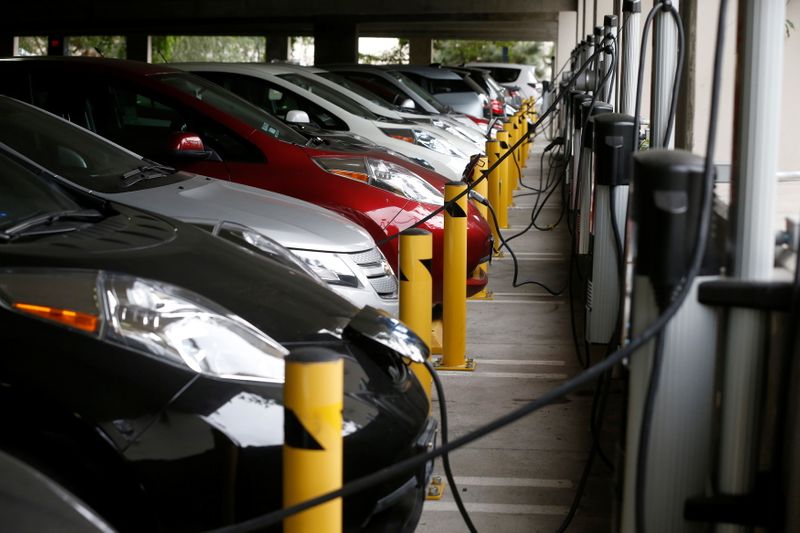By David Lawder
(Reuters) - The U.S. Trade Representative's office said on Friday it was committed to legislation strengthening the domestic electric vehicle industry despite objections from Mexico and Canada over a proposed tax credit for electric vehicles built by U.S. union workers.
The proposed $12,500 electric vehicle tax credit would include $4,500 for EVs built in the United States by union workers, effective after 2027. It is included in the Biden administration's sweeping climate and social spending legislation now under consideration by Congress.
Canadian trade minister Mary Ng told Reuters on Friday that Canada still had some room to maneuver to persuade U.S. senators to block the U.S. Senate from approving the specific U.S. union-made EV provision passed by the House of Representatives.
She said Canada "will respond accordingly" if it is enacted, but did not specify details. She added that the proposed credit violates the U.S.-Mexico-Canada trade agreement and would undermine Canada's efforts to produce electric vehicles.
Her comments echoed those of Mexican Economy Minister Tatiana Clouthier who said the tax credit was "discriminatory," and that Mexico analyzing a range of legal options in response that may include tariffs.
"In the past we have imposed tariffs and we would have to do or propose something very important and strategic for those products, in those places where it hurts them ... so that the consequences can be felt," Clouthier told a news conference.
She added that it was "totally contrary to free trade" and has previously rebuked the United States for pursuing what she described as protectionist policies that were liable to backfire and spur more migration to the U.S. border.
U.S. Trade Representative Katherine Tai has said she is aware of trading partners' objections and was discussing the matter with them, but has not specifically said whether she supports the proposed U.S. union-made EV tax credit.
"The Biden-Harris Administration is committed to tackling the threat of climate change by supporting the transition to electric vehicle manufacturing," USTR spokesman Adam Hodge said in a statement.
"We will continue to engage a range of stakeholders, including our close trading partners, as Congress considers legislation to strengthen U.S. leadership in the sector," he added.

In late October, Mexico, along with the European Union, Germany, Canada, Japan, France, South Korea, Italy and other countries wrote U.S. lawmakers saying the proposed electric vehicle tax credit violates international trade rules.
The proposal has been backed by U.S. President Joe Biden, the United Auto Workers (UAW) union and many congressional Democrats, but opposed by major international automakers, including Toyota Motor (NYSE:TM) Corp, Volkswagen AG (OTC:VWAGY), Daimler AG (DE:DAIGn), Honda Motor Co, Hyundai Motor Co and BMW AG.